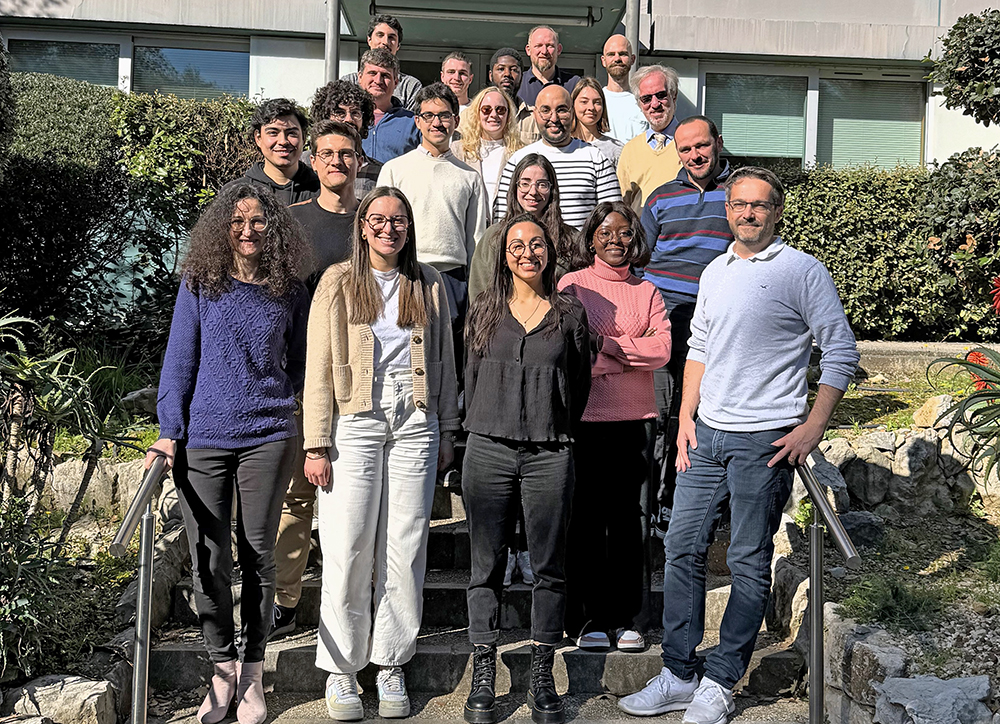Computational Solid Mechanics – CSM

The CSM team aims to develop numerical methods, mechanical models and materials characterisation methods applied to solid mechanics problems.
In particular, the approach proposed here is to take an interest in the forming chain of parts or components to be able to predict and optimise in-service properties by integrating the thermomechanical history of the material. It is also often essential to integrate the organisation of biological tissues on a microscopic scale into our biomechanical studies, as this has a direct impact on their mechanical properties.
We are working on the development of advanced numerical methods in a demanding software environment. The algorithms and methods must fit into the context of complex software structures in commercial software. We are proposing new models adapted to the complexity of the load paths encountered in forming or to the variability of tissue properties in biomechanics. Materials characterisation also requires the development of unconventional test methods that are better suited than standard test benches to complex loading paths and semi-industrial or medical environments.
The areas developed by the team cover the following fields :
- Numerical modelling of forming processes
- Behaviour - damage - failure for complex loading paths
- Biomechanics
- Dialogue between tests - models - calculations, Inverse Analysis & Optimisation
- AI & Forming
Our expertise enables us to work on the development and modelling of various applications, including :
- Solid-state forming processes: forging, rolling, stamping, hot forming quenching, etc.
- Hybrid and incremental processes: flow forming, magnetic pulse forming, etc.
- Plastic deformation assemblies: from installation to mechanical strength (riveting, crimping, etc.)
- Support for the development of medical devices and surgical planning tools
- Induction heating
Permanent Members
Ongoing Thesis
Doctoral Specialty: Computational Mechanics & materials
- >Thanh-Chung NGUYEN : Development of Digital Twins of Hot Forming Processes for Zr Alloys Using Deep Learning. Year 2025
- >Ange SZABO : An hybrid experimental/numerical strategy for void healing prediction during hot metal forming processes. Year 2025 + MSR team
- Judith BELLON : Improvement of low impact PV modules through a hybrid experimental/numerical strategy. Year 2024 + S&P team
- Miled CHALHOUB : Data-driven multiscale strategy for the prediction of void closure in material forming processes. Year 2024 + MSR team
- Walid DJEDAA : Characterization and modeling of the Bauschinger effect relaxation, recovery, and mechanical behavior of a martensitic steel. Year 2024 + S&P team
- Eroshan GAMAGE : Development of numerical methods for the simulation the machining process of a part produced by additive manufacturing. Year 2024 + MSR team
- Marine GANACHON : Consideration of biomechanics in the customization of an implantable osteosynthesis medical device: application to the reduction of complex fractures. Year 2024
- Antoine LECCIA : Modeling of co-rolling of uranium-bearing plates for research reactors in materials science and nuclear medicine.. Year 2024 + S&P team
- Rémy MARTINEZ : 3D multiscale modelling of damage mechanisms in recycled Aluminum alloys. Spécialité MNM, Year 2024 + MSR team
- Jorge Luis ARDILA VILLABONA : Conception d’un essai et modélisation thermomécanique pour l’étude du procédé HFQ de l’alliage AA2219. Year 2023
- Léa GUERANDELLE : Conception de matériaux dentaires à gradients de propriétés par fabrication additive. Year 2023
- Anes MARIR : Modélisation thermique et tribologique du laminage à pas de pèlerin de tubes. Year 2023
- Hiba BOURAS : Hydrogels et aérogels nanocomposites biosourcés pour des applications biomédicales. Year 2022 + BIO team
- Joséphine CHATELLIER : Caractérisation et Modélisation de l’emboutissage à froid multi-passes de tôles épaisses : application aux coques de sous-marins. Year 2022
- Valentin DUVIVIER : Analyse et modélisation de la rupture ductile de coques de sous-marins sous chargements complexes. Year 2022







